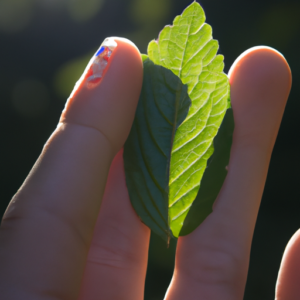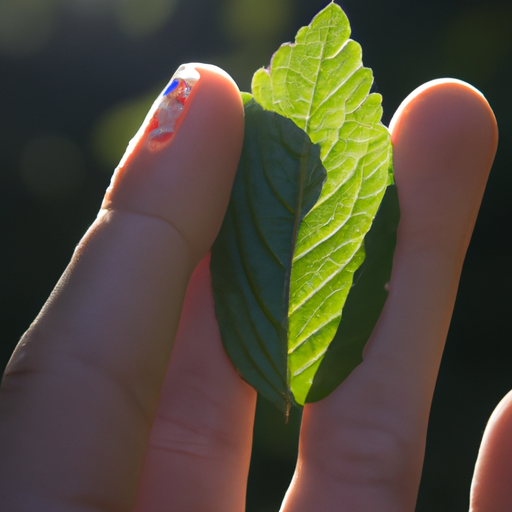Let’s Talk Skin Pigmentation: Why It’s a Big Deal
Hey there fellow skin enthusiasts! Today, I want to chat about something that affects many of us – skin pigmentation. It’s defined as the coloration of the skin and it can make us feel self-conscious, especially when areas of our skin become darker than others. But why is it such a big deal? Well, for starters it can be a sign of premature aging and it can cause uneven skin texture. As someone who’s dealt with skin pigmentation myself, I know firsthand how important it is to find effective treatments that work for our skin type.
If you want to learn more about treating skin pigmentation naturally, check out this informative article on Bright Side Beauty.
What’s Causing Your Skin Pigmentation?
Hey, it’s me again! Now that we know why skin pigmentation is important to treat, let’s talk about the different causes of it. There are a few reasons why your skin might be hyperpigmented, and it’s important to understand what’s causing it so you can treat it properly.
1. Sun Exposure:
The sun is one of the biggest reasons for skin pigmentation. Exposure to UV rays triggers the production of melanin, which gives our skin its color. Over time, this can cause dark spots, age spots, and other forms of hyperpigmentation. That’s why it’s so important to wear sunscreen every day, even if you’re indoors or it’s cloudy outside.
2. Hormonal Changes:
Hormonal changes, such as those that occur during pregnancy or menopause, can also cause skin pigmentation. This is known as melasma, and it usually appears as brown or grey-brown patches on the face. Hormonal birth control can also trigger melasma in some women.

Finally, some forms of skin pigmentation are caused by genetics. For example, people with darker skin tones naturally produce more melanin, which makes them more prone to certain types of hyperpigmentation.
Get Rid of Skin Pigmentation with Natural Solutions
Dealing with skin pigmentation can be frustrating, and many people look for effective treatments. In my search for solutions, I have discovered that natural remedies can be just as effective as synthetic ones. Here are some natural solutions that have worked for me:
Vitamin C Serum
Vitamin C is known for its skin brightening properties. Applying a vitamin C serum to your skin daily can help fade pigmentation. The serum is rich in antioxidants, helps to even skin tone and boosts collagen production. It’s important to use a high-quality vitamin C serum with at least a concentration of 10%.
Aloe Vera
Aloe Vera is a natural plant that is perfect for treating skin pigmentation. It has skin-lightening properties that can reduce pigmentation on your skin. It further helps to improve hydration levels, suppleness and elasticity of the skin.
Licorice Root Extract
Licorice root extract is an anti-inflammatory and anti-oxidant agent that has been found to reduce pigmentation, acne marks, and dark spots. It has also been found to improve uneven skin tone. Apply the extract topically for best results.
Precautions to Take When Using Natural Solutions
It’s important to be careful when using natural remedies on your skin. Here are some precautions to take:
- Do not overuse products, as this can lead to skin irritation and damage.
- Check for any allergies or sensitivities to the products before use.
- Use products with SPF protection to reduce sun damage that can lead to pigmentation.
If you are unsure about a particular product or remedy, consult a dermatologist before use. With the right care, you can have bright, healthy looking skin free from pigmentation.
Precautions to Take When Using Natural Solutions
Okay, so you’ve heard that natural solutions can help treat skin pigmentation. That’s great! But before you start smearing all kinds of concoctions on your face, let’s talk about some important precautions you should take to avoid any unwanted side effects.
Do Not Overuse Products
Just because a natural solution is good for your skin, it doesn’t mean that using it in excess will make it better. Using too much of a certain product may cause irritation, redness, or even more pigmentation. To avoid this, start by applying a small amount of product and gradually increase the dosage over time, as your skin adapts to it. Stick to the recommended usage instructions and give your skin time to heal between applications.
Check for Allergy
Some natural products may trigger allergic reactions, which could worsen or cause skin pigmentation. Before using any new product, perform a patch test by applying a small amount of the solution to the inside of your wrist or behind the ear. Wait for 24 hours and check for any abnormal reactions such as itchiness, redness, or swelling. If you notice any of these symptoms, do not use the product and seek medical advice before reattempting.
Use Products with SPF Protection
SPF protects the skin from UV rays, which are also one of the causes of skin pigmentation. Apply a sunscreen or a natural product with an SPF of at least 30 to ensure maximum protection. Some natural ingredients like coconut oil or jojoba oil also provide some protection against the sun, so consider using a combination of natural products and sunscreens for added protection.
Following these precautions will help you avoid undesired outcomes and help you get the most out of natural skin pigmentation treatments. With proper care, there’s a good chance you’ll be able to eliminate pigmentation and achieve a brighter complexion with natural solutions.
Wrapping it up: My Final Thoughts on Treating Skin Pigmentation
Well folks, that’s a wrap on our journey exploring natural solutions for treating skin pigmentation. As someone who has struggled with this issue myself, I know firsthand how frustrating it can be to find the right methods to reduce dark spots and uneven skin tone. But fear not, there are a plethora of natural remedies out there that can help improve the look and feel of your skin.
First and foremost, it’s important to understand what causes skin pigmentation in the first place. Sun exposure, hormonal changes, and genetic factors all play a role in the development of dark spots and patches. By identifying the root cause of your pigmentation, you’ll be better equipped to treat it more effectively.
When it comes to natural solutions, there are a few key players to keep in mind. Vitamin C serum is a great option for brightening and evening out your skin tone, while aloe vera and licorice root extract can help soothe inflammation and balance pigmentation. However, it’s important to keep in mind that there are a few precautions you should take when using natural remedies.
Don’t overuse products, as this can lead to irritation and further damage to your skin. Always check for allergies and sensitivity before applying products to your face, and be sure to use products with SPF protection to prevent further damage from the sun.
At the end of the day, treating skin pigmentation can be a trial and error process. But armed with the knowledge of what causes it and what natural solutions are available, you’re well on your way to achieving a more radiant and even complexion.
